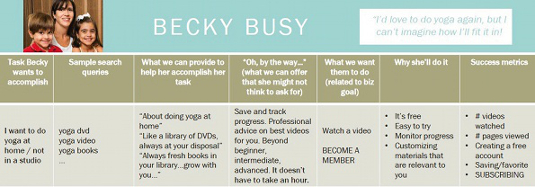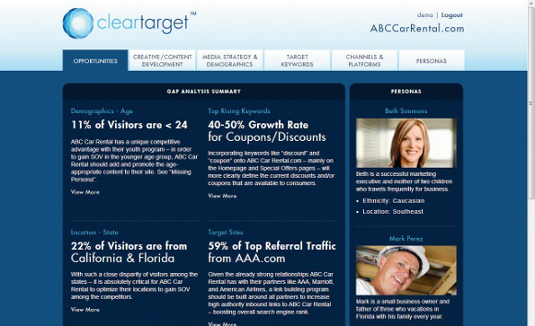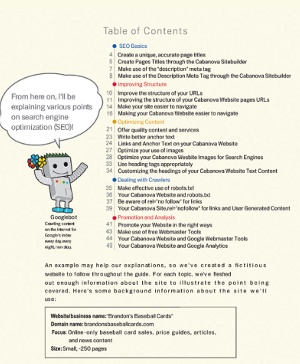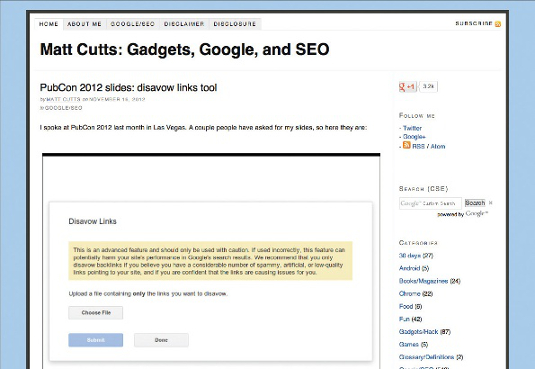Websites Traffic Down Again With New Google Update
How to get your website to the superlative of Google
This article start appeared in issue 238 of .net mag – the world's best-selling magazine for web designers and developers.
Sure, you know about SEO. Y'all might not be an expert, per se, but you take a skilful understanding of the nuts: title tags, clean URLs, text-based blueprint and and then on.
Even if y'all're more of an proficient than nigh, merely every bit often it's what you don't know about SEO that will hurt you.
Many webmasters found this out the hard mode in Feb 2011, when Google's Panda update was released. Many of these same webmasters were striking again niggling more than a year subsequently, when the search behemothic's Penguin update followed – targeting low-quality, spammy link-building tactics. What they idea was SEO worked for a picayune while, and and then turned out to be less than optimal. Sites were penalised; traffic and revenue lost, and and then-chosen 'SEOs' fired.
Since and so there'due south been a new tone in the SEO industry. Not all of u.s. were creating depression-quality content and links; just for many of those that were these two updates were a wake-up call. And for those of us who have always been focused on high-quality, relevant content and links, it was something similar redemption. Our sites soared while so many cruel.
This is the new normal for SEO. Yes, there are still some who call themselves SEOs simply focus on manipulative tactics with brusque term revenue goals; nevertheless there are too many who are part of a large and growing manufacture of specialists in a highly complex subject that requires marketing, technical, and enquiry and communication skills.
So just how large is SEO? Believe information technology or not, it's bigger in the minds of Google searchers than web design. Once considered a subset of spider web design, searches for SEO now eclipse those of web design worldwide.
The total projected value of the North American search marketing industry (SEO and paid search) in 2013 is $26.8billion, co-ordinate to industry trade system SEMPO, and thirteen per cent of companies have SEO budgets of one-half a 1000000 to more than three 1000000 a year (upwards from 8 per cent in 2011).

As budgets increase, at that place'due south more to lose, and many companies have become more risk balky – forgoing the shady tactics they may accept pursued in the by.
In cutting out the garbage we start to see what SEO is really practiced for (and has always been expert for): connecting relevant content with relevant searchers, and making content discoverable through accessibility and marketing.
For those of you who still think of SEOs equally greasy algorithm-chasers in cheap suits or parents' basements, consider the new reality.

Engines are not enemies
When I started doing SEO in-house for a Fortune l corporation 10 years agone, there were many in the organisation who were a petty nervous virtually what we were doing. Zero was against the Google guidelines … because at that place were no such guidelines in being. At that time in that location were a few books, merely SEO was largely something that was spoken of covertly, and certainly never to search engines, which, information technology was thought, would likely think of it as manipulation.
Today we know better. Google and Bing have both published extensive webmaster guidelines, and Google has even published a guide to SEO for beginners. In August 2011 Matt Cutts, Google's head of webspam, released a video argument saying that Google does not consider SEO past itself to be spam. This sentiment now appears in Google's definition of search engine optimisation, in which it says: "Many SEOs and other agencies and consultants provide useful services for website owners."
Notwithstanding, because of a few spammers who call themselves SEOs, SEOs in full general have the reputation of being charlatans, and have been portrayed equally such on television shows such equally The Proficient Wife and Dexter.
"SEO has unfortunately got a bad rap, and it'south due mainly to questionable SEO practitioners who perpetuate the 'snake oil' stereotype by making customers believe there's some magic 'black box' that 'tricks' the search engines," says Gord Hotchkiss, principal strategy officer for Montreal-based Mediative and regular columnist for Search Insider. Hotchkiss, and the other experts I attain out to for this commodity, explain that SEO is simply about getting relevant content indexed, and making sure it's visible to the search engines.
All of the veteran SEOs that I speak to empathize why SEO yet has the reputation in some circles of beingness snake oil. Just they insist that it has, at this indicate, become much more mainstream and credible.

Rand Fishkin, founder of Seattle-based SEO software visitor SEOMoz, discusses with me a few of his favourite reasons for SEO being something other than snake oil, including that "SEOmoz itself has more than than 2million monthly visits, nearly all from web marketers looking to acquire more about the practice. And our software, which bills monthly, has more than 18,000 subscribers as of today. If SEO were simply snake oil, I strongly suspect folks would stop paying."
SEO, in its legitimate form, is now a more accustomed office of the spider web design procedure, and in many organisations is finally getting a seat at the table when information technology comes to designing professional, search engine-friendly spider web sites.
A procedure, not a projection
In my decade-plus doing enterprise SEO there have been many instances in which the SEO team is brought in later on the website is already consummate, and told to magically brand it search engine friendly. This isn't ideal. Every bit Google says in its guide to SEO: "If y'all're thinking about hiring an SEO, the earlier the better."
The actually competitive sites that I've worked with over the years understand this, and integrate SEO into every stage of their planning process, from information architecture to content strategy to blueprint, evolution, launch and post-launch.
A lot of spider web designers and developers are hesitant virtually integrating SEO further into the process, considering doing then effectively produces extra work. But the rewards can be great, reminds Vanessa Fox, founder and CEO of Nine by Bluish and writer of Marketing in the Age of Google. "Organisations are losing 1) tremendous insight into their customers and potential customers if they don't take reward of the costless search data that'south available from the millions of searches we do each solar day; 2) the opportunity to reach a significantly larger audience through being visible in search results."
Would yous put the Mona Lisa in a closet? Would you spend hours cooking Beef Wellington, and every bit it emerges perfect from the oven throw information technology in the trash? Then why would you build a website without considering how it volition be institute?
There's some other reason for making SEO a priority in the spider web design process, advises Hotchkiss – "it forces you to create a better website! Good SEO optimisation should be baked into your data compages. It will forcefulness you to think about common content themes. It requires you to consider how all digital assets (such every bit videos and user-generated content) will be integrated into the overall user experience. It helps eliminate user experience expressionless ends such every bit gratuitious Flash interfaces and, my personal pet peeve, content locked in PDFs. It extends your perception of your online footprint across the bounds of your website, including things like social media. It volition also instil a healthy rigour when it comes to thinking nigh how your site links together. Expert SEO practices ways a meliorate user feel."

From my experience, more than organisations than always are learning these lessons, and are no longer thinking of SEO as a project, just as an ongoing process that ensures a website will be as visible in search as possible. This is good for web pattern considering it gives it a larger audience, but also expert for business.
It's not just virtually links: emerging SEO trends
While many commentators take claimed that SEO is dead since it began effectually 1997, the truth is that information technology doesn't die; it evolves with the search engines. While SEO is constantly evolving, at the moment it seems focused on mobility, utility, the audience and automation, amidst other things.
One of these trends is the dissolving distinction between SEO, user experience and content strategy. In one recent Webmaster Tools YouTube video, Matt Cutts even suggested that those looking to change the name might consider "searcher experience optimisation" to differentiate from the snake oil diverseness of SEO.
Some, such as Vanessa Play a joke on, have suggested that SEO demand not continue as a separate activity from UX and content strategy: "I think that both disciplines should incorporate best practices from search rather than thinking of it equally something tacked on later," she says. "Particularly, the information available from search is extremely valuable. As well, understanding that many visitors begin with a major search engine and that any page of the site can therefore go the dwelling folio of the site can shift how nosotros look at both page design and content."

At the same time, Flim-flam – and all of the other SEOs I asked – recognise that content strategy and usability, while essential for reputable SEO, need technical and other elements from SEO to be useful every bit a fashion of getting incremental search engine traffic.
"When SEO is washed the right way, usability and content is a huge office of the plan," opines Eric Enge, founder and CEO of Massachusetts-based Stone Temple Consulting and co-author of The Fine art of SEO. "This is something that the snake-oil SEO people don't worry about. For long-term success every bit a web publisher, the use must come first. Nonetheless, for success equally a business, you need to practice more."
With this concentration on content strategy and usability comes a focus on the audience also. For Hotchkiss, this is a shift from discussion-matching to utility, and follows the search engines' own development. "Today, skilful SEO is about making sure that when a prospect uses a word (or words) to search for something, you friction match that as best as possible," he says. "Only in the hereafter, SEO will be about ensuring that when your prospect wants something, you deliver it. Information technology may not be content. It may be a movie ticket, a hotel booking, a restaurant reservation or a downloaded Telly prove."
A change in analysis
Delivering on this promise frequently requires a new blazon of assay. In the past, marketers have done keyword research to uncover keywords as proxies for user intent. In Marketing in the Age of Google, Vanessa Fox describes the process of creating searcher personas that get beyond simple keyword matching and search volume exercises. And however others, such every bit iCrossing'due south Cadre Audition and Resolution Media'due south ClearTarget effort to understand characteristics of audiences, including just not express to the keywords that they use.
For some businesses, mobility volition non change user intent. For example, news is not going to exist rewritten for a separate platform, equally Karen McGrane and other adaptive content advocates frequently point out. Withal, for some businesses it does; and if marketers desire to get the most traffic and conversions from the mobile platform (in other words, exist optimised for) the devil is in the detail, and understanding potential differences between mobile and desktop audiences is key.
At that place are technical considerations too, which make a type of SEO geared towards these differences – what is commonly chosen mobile SEO – what it is. Many people in the SEO world, equally with their counterparts in the blueprint world, believe that responsive design is the answer to these differences – and Google stated a preference for responsive blueprint in June. Even so, as I said in event 232 of .cyberspace, responsive design is not e'er best for the user, and Google wouldn't prefer it in those cases. If mobile and desktop search behaviour is significantly different, Google supports using dynamic serving or switchboard tags as well.

Cindy Krum, CEO of Denver-based mobile marketing agency Mobile Moxie and author of Mobile Marketing: Finding Your Customers Wherever They Are agrees that responsive design is one of many solutions for mobile SEO. "I take been recommending a mixed solution for nigh of my clients," she says, "leveraging responsive design when it makes sense, and special mobile-only landing pages when keywords or utilise-cases cannot be appropriately addressed with a responsive design approach."
Some other large shift in SEO has been the introduction of more automation to the process. SEO software has been around as long as SEO has (retrieve WebPosition Gold?), simply the breadth of tools and level of sophistication has increased considerably in the last yr or two.
Now in that location are tools to help yous optimise the long-tail through semantic relevance (BloomReach), reporting tools (Conductor, BrightEdge, SEOMoz)), link building tools (Ontolo, Ahrefs, Open Site Explorer, Purple SEO) and more, all geared toward automating aspects of the SEO process (see our pinnacle 20).
When this happens, inevitably someone in the printing will claim that the tool will let you to burn your redundant SEO; but none of the SEO experts or software providers I talk to agree. "Great SEO starts with human beings who are creative, tenacious, and empathetic to the needs of searchers," says Fishkin. "No software can ever automate those processes."
There are other trends in SEO that are important, among them the integration of social signals into ranking algorithms and SEO that is not just text-based, but well-nigh understanding and optimising images and videos – peradventure eventually for wearable computing purposes (Google Glass, for instance). All in all, legitimate SEO has evolved with the search engines – and information technology continues to practice then. Every bit I've said, understanding and applying this new information requires a new blazon of SEO practitioner, and a unlike kind of user-focused SEO. The side by side time someone tells you something different, you now have the knowledge to set them straight.
How to send large files to clients: discover 8 free tools
Related manufactures
Source: https://www.creativebloq.com/how-get-your-website-top-google-6133899
0 Response to "Websites Traffic Down Again With New Google Update"
Post a Comment